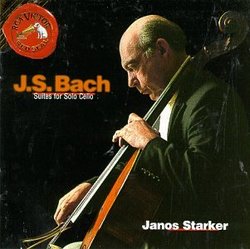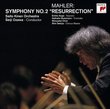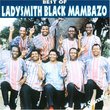| All Artists: Johann Sebastian Bach Title: Bach: Suites for Solo Cello Members Wishing: 1 Total Copies: 0 Label: RCA Release Date: 3/11/1997 Genre: Classical Styles: Chamber Music, Historical Periods, Baroque (c.1600-1750), Instruments, Strings Number of Discs: 2 SwapaCD Credits: 2 UPC: 090266143627 |
Search - Johann Sebastian Bach :: Bach: Suites for Solo Cello
 | Johann Sebastian Bach Bach: Suites for Solo Cello Genre: Classical
This is Janos Starker's fifth recording of Bach's cello suites. His third set, for Mercury (423 756-2), is even more perfectly played. But the musical maturity, the subtlety of inflection and expression, in this set is tru... more » |
Larger Image |
CD DetailsSynopsis
Amazon.com This is Janos Starker's fifth recording of Bach's cello suites. His third set, for Mercury (423 756-2), is even more perfectly played. But the musical maturity, the subtlety of inflection and expression, in this set is truly incomparable. Unlike his earlier recordings, Starker now plays all the marked repeats in the score, making them an even richer experience. This playing satisfies all requirements of the head and the heart; it makes every point you want to hear, and it's profoundly moving. This recording is one of the best Bach sets in the catalogs, and one of the most justified Grammy awards ever. --Leslie Gerber Similar CDsSimilarly Requested CDs
|
CD ReviewsVery Impressive Snow Leopard | Urbana, IL | 11/26/2002 (4 out of 5 stars) "To review a performance of Bach's work always seems like something I should prepare for by getting a musicological degree. As it is, I have only my ear and my experience and (what is most helpful) other performances of the same piece to go by. The purpose of this review isn't to prove, then, better or best, but to try to clue others into the specific character of this performance.The Suites for Solo Cello by Bach are exactly that--one performer, and nearly everything possible on the instrument (until composers discovered more tricks for the instrument in the 20th century). It is six suites, each comprised of six pieces (all various dance forms, though Bach's genius so refines the form that tempo tends to be the only aspect of each dance that is readily obvious). As compositions, just about all of the pieces are captivating; from a technical aspect I'm told that they are even more amazing still. (Sometimes Bach arranges contrapuntal phrases so that the cello becomes a one-man chamber orchestra.) For the dabbler, there is a slight chance that the first prelude of the first suite might be familiar--it has been recorded on all kinds of other instruments, and warrants such a spotlight given its ceaseless charm. Buried more deeply in the collection, the Allemande from the Suite in C Minor is a literally heart-wrenching piece deserves to stand alongside the much more famous Erbarme Dich from Bach's Saint Matthew Passion.As to the performance itself, one could go on endlessly comparing one performer to another, specific performances to a preferable one somewhere else, or even (in the present case) of Starker's 1992 recording with his four earlier ones. In fact, I have performances by Ma, Starker, Gendron, Rostropovich, Wispelwey, Bylsma and the one that started it all, Casals. Naturally, I have a whole labyrinth of preferred performances, and if I really put my mind to it, I could compile a whole collection of the suites by picking and choosing favorite versions from the seven performers. Short of such quiltwork, the main thing that brings me back again and again to Starker, Rostropovich, Ma and Gendron is the tone of the cello used. Local differences in performance can be overcome by the richness of the instrument (or, perhaps, differences in quality of recording; I don't know enough about cellos to distinguish between its live versus its recorded sound quality).In practice, this means I listen either to Starker or Ma (his first recording). The tone or recording quality for both is rich, sonorous, yummy. Also, both performers opt for slower tempi overall, which in places lends more stateliness to the pieces or saves them from what sounds like bad taste in faster versions by others. There are far too many emotional and qualitative changes throughout the Suites to make an overall generalization, but even so, there is a pleasing "thickness" to the performances by Ma and Starker that makes me play their whole sets more often, whereas with others' performance I simply pick out favorite bits.It is also true that I listen to Ma's more than Starker's. Ma has been accused of too much cerebralness; in performance, this means that he moves through the pieces with more regularity, less variation. There is no lack of passion--the music itself brings that out, even in its mathematical precision--it's just of a more restrained nature. This is not to say that Starker's performance is an unabashed dilation of rubato and flourish without any reserve. His version of the Allemande mentioned above, though, is a full two minutes longer than Ma's. That kind of attenuation conveys its own variety of intensity, though for me specifically it drags by comparison to what registers for me as the "perfect" rendition of the piece by Ma. (The comparison here is an attempt at characterizing the performance overall, rather than insisting that Ma's is better than Starker's.)It is clear that Starker brings an utterly intense musicality to this performance, his fifth recording of the Suites. Of them, he remarks with candor, "Playing Bach is a never-ending quest for beauty, as well as in some sense, the truth...As the years and decades go by, the understanding grows while the technical means weaken." Even without this admission, one can sense it in the music, especially by listening to other recordings. Where some seem to labor through the first prelude, Starker brings it to life by playing call-and-answer dynamic changes in the repeated phrases (as well as very slightly varying the tempo in each answer). This amazingly simple, effective (and obvious in retrospect) idea is absent from other performances I have; Wispelwey has a suggestion of it. Elsewhere in Starker, I can hear him reaching but not quite achieving what he's getting at; it is at these such points that Ma's performance outstrips him. (One could say that Ma lacks the depth which Starker brings to this recording--Ma, of course, was much younger then, and has since rerecorded the suites--but a relative lack of depth in music this profound still comes out excellently.)I am fairly certain that the sensibility Starker brings to his performance steals every bit of wind out of anything Ma had to offer in his first performance, but if my own knowledge of the architecture and the intricacy of the Suites is not on par with Starker's, then it is difficult to experience in the music. At the risk of insulting Ma, I'll suggest that his performance is Bach Cello Suites 101, and that their very consistency (listened to at length) is the perfect steppingstone to understanding the much more Baroque labyrinth of Starker's performance.First impressions are hardest to shake in performances of Classical music. I knew of Ma's performance first and long ago, so it is all the more a testimony to Starker that he can edge up next to my "favorite" version, and even hint at unseating Ma." An aristocrat among cellists Snow Leopard | 06/13/2000 (5 out of 5 stars) "Bach's suites for solo cello were dismissed by his first biographer as technical exercises!: their profound beauty only gained notice when Pablo Casals first began playing them as integral suites, early in this century. Casals' performances of these pieces, for all the shortcomings of the recordings, are still some of the most remarkable musical statements I have ever encountered. Many superb cellists have recorded them since, but Starker's may be at the top of my pile. He possesses a dazzling technique that lies totally at the service of the music. Every time I listen to these performances I find myself breathless in astonishment at the beauty of the phrasing. These are not "original instrument" performances, but at the same time Starker maintains a kind of reserve that seems completely appropriate to this noble music, and quite different from other modern performances. Altogether, there is something magisterial about his ability to express true emotion without lapsing into exaggeration. All music lovers should know the Bach cello suites, disarmingly simple in places and full of rhythmic and tonal complexity in others. This recording is a superb statement by an artist who is in total control: technically of his instrument, and emotionally of the music itself." Bach Cello Suites played with Gusto Ernest Boehm | Des Plaines, IL United States | 06/17/2000 (5 out of 5 stars) "Janos Starker is extrodinary, and then you add Bachs most callenging and passionate work the cello suites. Starker has an excellent understanding of the dymanics of Bach and the compexity of the cello suites. His technique is flawless. He brings passion to each note. As well he understands when to emphize and when to hold bach on the musical phrasing of the piece. I would say that this is a much more complex and exciting version of Bach than Yo-Yo Ma's recording. Starker uses vibarto when needed and called for while Ma falls back on it and over uses this technique detracting from the music.This is one of my top five classical recordings that I own the other include Stavinsky's Firebirds Recorded by the Chicago Symphony, Maria Callus singing Bizets Carmen, Bachs Paratia's and Viloin Suites recored by Perlman and Mozarts Great Mass in C."
|

 Track Listings (18) - Disc #1
Track Listings (18) - Disc #1![Sentimental Swing: All-Star Dance Classics [12 Hits]](/images/no_cover/m.png?v=15401716)









